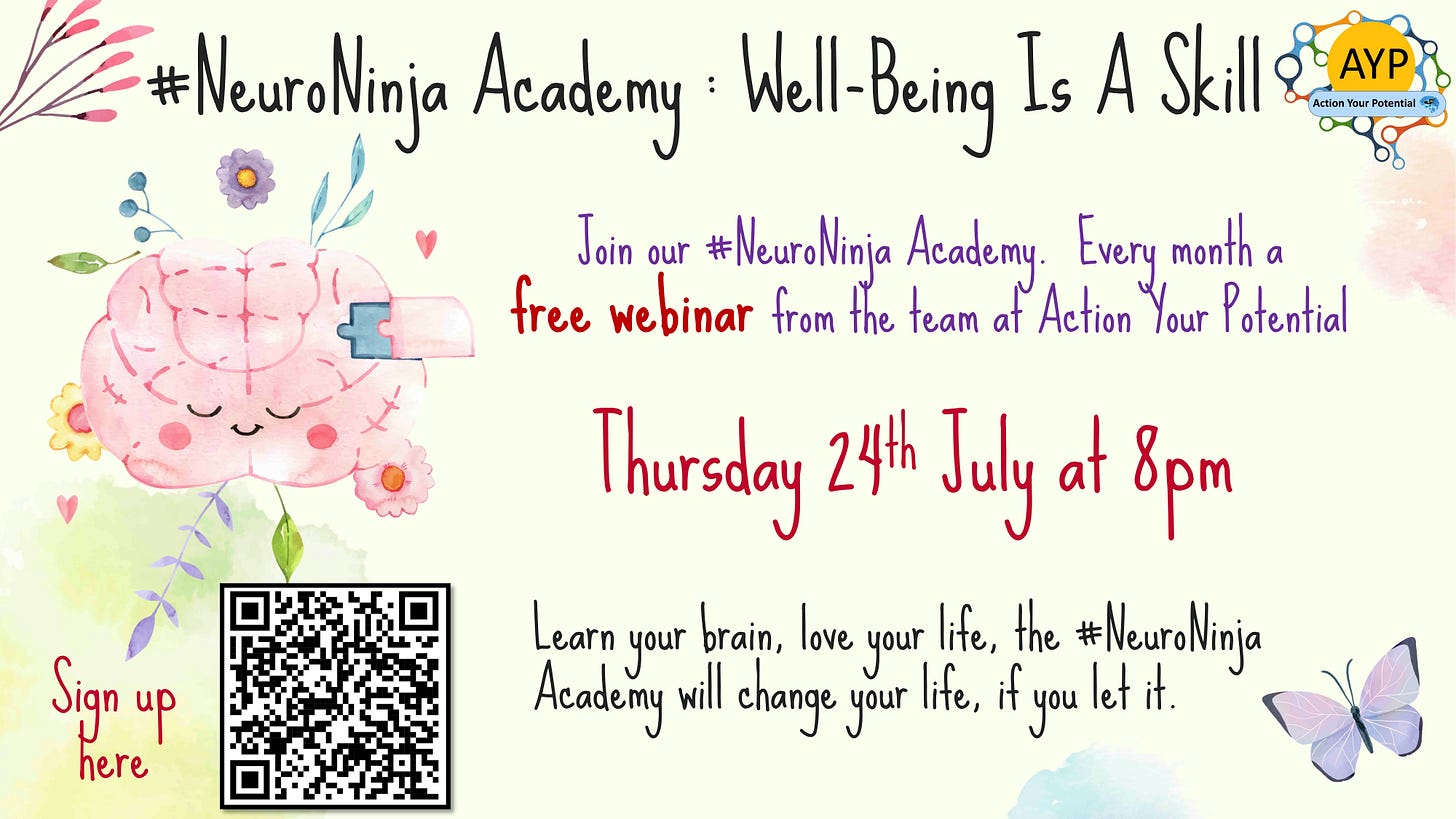There's a model for that!
Reflections on University, uncertainty and our brain's need to model the world
Hello and welcome to this edition of The Neuro Ninja Newsletter!
This revamped newsletter is all about giving people the gift of themselves – through the transformative power of neuroscience.
If you missed last week’s, you can catch up here!
In this edition, reflections on uncertainty, big life changes and the way our brains use models.
I have a model for that!
For the last four years I’ve been in the throngs of my undergraduate degree at the University of Bath.
Last week I got my results. 🎉🥳
Now, this newsletter isn’t going to just be me waffling on about my degree, uni life… any of that. But whilst we’re on the subject, I will pause for brief applause.
👏👏👏👏👏👏👏👏👏👏👏👏👏👏👏
Thank you very much, you’re too kind 😉
Instead, I want to turn back time to a younger, more permed Adam in September 2021, heading across to Bath for the first time.
It was just after Covid, the world was slowly unlocking and I was really worried.
A lot of overthinking.
Some combination of the Covid lockdowns, and choosing to delegate my education back on two separate occasions meant that I had a lot of time to get worried about what University would and could mean.
Moving away from home for the first time. Would I cope? Managing my own schedule every day, all of the time. No more free meals! Paying for bills and rent on a shoestring loan and some lacklustre savings (thanks Mum and Dad for helping me to get through…)
I didn’t know it then, but what was actually going on was that I didn’t have a model for these things, and thus my brain was desperately trying to guess, predict and worry my way through any and all possible scenarios.
Your brain makes models 🧠
Fundamentally, our brains work using these things called models. A model can be a lot of different things, but it basically means your brain has an understanding and an experience of something.
These models can range from the enormously complicated, to extremely simple. A clear example is driving a car.
Most of us who can drive were very nervous to start learning to drive, and found the management of clutch, gears, accelerator, wipers, wheel, mirrors, lights, glovebox, cupholders, dangly air fresheners, road laws, types of signs etc very hard to manage.
We fundamentally didn’t know what it all was going to look like, how the road was going to be, or how it all worked together.
But slowly but surely we have built a model for how to drive, based out of our experiences and practices.
It’s the same with schools, educational environments, work environments. Our brains build models for everything we do, in order to protect us and give us a sense of comfort and control.
The problem 🤔
This is all very well, apart from when we do something new. When we do something new, by definition our brain doesn’t have a model for it. It doesn’t know what it’s going to be like.
So we can often find ourselves down mental rabbit holes of worrying, castastrophising about that new thing, as our brain desperately tries to guess its way to understanding.
This is what my brain was doing before I went to Uni, four years ago. I was genuinely worried about what it all would mean, what it would look like and if it would all be okay.
Within a few weeks of moving out and starting my studies, it was okay. I had built a model for what it looked like, so my anxiety about it faded. So when I returned for second, third and fourth year, I was much less stressed.
However, this isn’t really an ideal solution, is it? We don’t want to always be stressed about new things until we’ve done them.
So, how can I fix this?
Well, unfortunately you can’t really. You are probably always going to worry about new experiences. Uncertainty and change are unavoidable.
But what you can do is learn to manage it more effectively, and it starts with understanding what’s going on.
So the next time you’re about to undertake something new, maybe its a new job, maybe it’s visiting a new country, or joining a new class or social club, remember that these worries are just your brain trying to protect you from any possible outcome. Once we realise that, the sometimes dizzying power that these fears have over us is loosened, and we can manage them much easier.
Find more information on our website, including how to access our excellent coaching services for individuals, organisations and schools.
Have you signed up for our free webinar yet?
Join the Neuro Ninja Academy at 8pm on Thursday the 24th July! Every month we host a free webinar to make the life changing power of neuroscience as accessible as possible.
This month, we're looking at the neuroscience of well-being as a skill. You'll learn powerful, practical and easy daily actions you can take to boost your well-being.
Did we mention, it’s free?!
Have some constructive feedback on this newsletter, our programmes, or anything AYP? Send it our way and you may be featured in a future newsletter!
Email me at adamwright@aypuk.com, or leave a comment using the button below.
Thank you for reading this edition of The Neuro Ninja Newsletter!
Neuro Ninja Newsletter was written by Adam Wright. Edited by Angela Wright.






